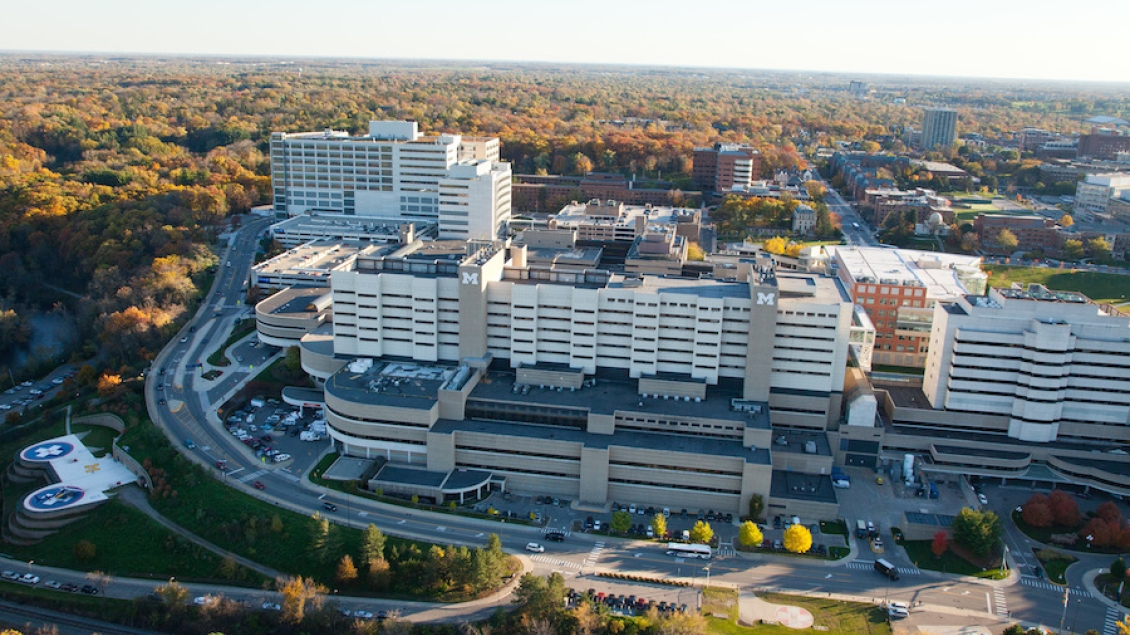
Programs Designed to Meet Your Career Goals
The Internal Medicine Residency Program offers three training programs to help residents reach maximal potential.
The Internal Medicine Residency Program leadership team is committed to helping our residents achieve maximal individual potential and develop into compassionate physician leaders in their chosen field. Our comprehensive Categorical Program is designed for individuals who are interested in careers in either academic or community-based General Internal Medicine, and for individuals who will go on to seek subspecialty fellowship training. Residents may also elect to participate in our Primary Care Program, or our Physician Scientist Training Program, which is offered as an option for qualified candidates.
To further our residents’ development, the Community of Medical Educators in Training (CoMET) Program, Global Health Research Certificate Program, and the Health Equity and Quality Scholars Program are also available as optional training for all residents.
Community of Medical Educators in Training (CoMET), is a trainee-designed and trainee-led initiative sponsored by the Office of Graduate Medical Education to create a community of practice for trainees across the health system committed to medical education. The program looks to sharpen participants’ teaching skills and develop a network of motivated colleagues that is fertile for medical education scholarship and innovation.
Objectives of the CoMET program follow directly from its three-part mission to:
- Teach: Participants will leverage knowledge of core teaching skills to effectively educate learners in a variety of settings including in the classroom, at the bedside, and during procedures.
- Discover: Participants will develop the skills necessary to produce respected scholarly work in education.
- Inspire: Participants will be prepared to transition from trainee to faculty member in order to innovate and lead the next generation of medical education.
Drawing on education theory and principles of curricular design and modeled after the successful Medical Education Scholars Program, Academy of Medical Educators, and GME Scholars Program, the community utilizes twice monthly 90-minute sessions to achieve these goals. These twice monthly sessions consist of:
- Teaching to Teach – Interactive didactic sessions taught by content experts within both our hospital system as well as the Department of Learning Health Sciences, home to renowned medical educators. Sessions range from effective classroom teaching and teaching when time is limited to how to get credit for one’s work. The goal of these sessions is to take lessons learned in a classroom setting and apply them to your own practice on the wards. There will be structured teaching opportunities with feedback from co-fellows and education experts.
- CoMET Curriculum and Workshop – These sessions focus on the development a project of your choice. Each session will be built around a core tenant of Kern’s Curriculum Development for Medical Education: A Six-Step Approach (a copy of which is provided upon acceptance into the fellowship). These cornerstones will then be applied in small group sessions to help guide each one of you in developing a curricular model over the course of the year. Prior participants have successfully completed and implemented educational projects ranging from redesigning specialty-specific didactics to developing required rotations for the new medical student curriculum in addition to undertaking new responsibilities in didactic and bedside teaching.
Request for additional information and questions can be directed to [email protected].
The Global Health Research Certificate Program is intended to help faculty, fellows and residents incorporate global health into their research portfolios, creating a foundation for meaningful collaborative relationships and research in the global health setting, and ultimately paving the way to successfully compete for extramural funding for global health research. Through a combination of mentorship, and monthly seminar events, participants will gain the tools to develop their own research activities abroad, including the skills to seek extramural funding for global health projects.
Participants will work through a customized curriculum that for most will extend over two years and include the following:
- Active participation in at least 70% of monthly seminar sessions, to be held virtually via web conferencing until further notice.
- Participating in other U-M/UMMS global health programming/seminars (e.g., Global Health Initiative seminars organized by Global REACH).
- Engaging in mentorship with local and international mentors.
- In addition to the requirements above, participants upon program completion should have a demonstrated understanding of the following key competency areas. The following competency domains are broad in nature, framed as questions participants should be able to answer. They will be customized by the faculty presenters to complement their skills and address the needs of the program learners.
The Health Equity and Quality Scholars Program is a longitudinal healthcare disparities curriculum incorporating cultural humility, social determinants of health and quality improvement. This 10-month certificate program is designed to further develop house officers into leaders and change agents for healthcare equity.
This effort aims to strengthen the Michigan Medicine framework, and fulfil the ACGME Common Program Requirements, for engaging clinical learners in quality improvement to address health care disparities within the Clinical Learning Environment (CLE)—shaped by the findings of the ACGME’s Clinical Learning Environment Review (CLER) and our aims to better identify opportunities to improve the care and outcomes for vulnerable patient populations.
Expand your career trajectory in a high-volume academic medical center that also supports and excels in a wide range of basic science, translational and clinic outcomes research programs.